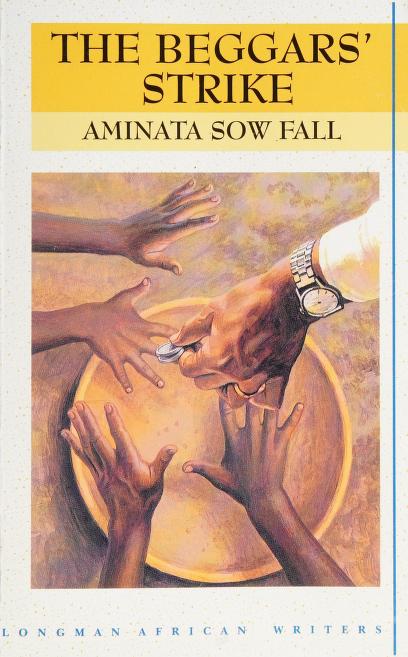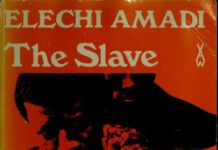Chapter One of Aminata Sow Fall’s The Beggars’ Strike is about the changing perception of the society about beggars. Beggars are perceived as human eyesores, “parodies of human beings”, and “dregs of a society.”
In a particular instance, a young man and a beggar have a fight. The man insults the beggar but when the beggar replies the young man with some obscenities, the man questions the audacity of the beggar to use such language on him. In response, the beggar says:
Oh! just because we’re beggars, people think we’re dogs! We’re beginning to get fed up with the way we’re treated!
Page 1, The Beggars’ Strike
This statement is significant in two ways. Firstly, it is symbolic in that it represents the conflict of the novel. In fact, it is a precursor to the beggars’ demands to be regarded as human beings too and necessary members of the society. Secondly, the statement and the scuffle that births it further fuels the resolve of Keba Dabo to get beggars off the streets of the Capital.
It is believed that the beggars are the one reason the number of tourists depreciated that year. Keba Dabo is the assistant to Mour Ndiaye, the Director of the Department of Public Health and Hygiene. Like his boss, Keba Dabo dislikes beggars and their conducts around the city.
Acting on behalf of Ndiaye and in his capacity as a top gun in the Department of Public Health and Hygiene, Keba Dabo is taking beggars off the street. His efforts thus far have proved abortive as the beggars keep returning to the strategic places they are picked from to continue their businesses. Ndiaye calls Keba to reiterate the need to take beggars off the streets to keep the Capital hygienic.
Ndiaye’s ulterior motive however is that if he is able to clean the Capital free of beggars, he will earn more honours, titles and awards. This is what the entire thing means to him.
Knowing he can’t pull this off on his own because he lacks the competence and his job as the director is purely political in the first instance, he delegates the task to his assistant, Keba Dabo, in whose competence and discipline he has faith in.
In the next sequence of events, Sokhna Lolli, Mour Ndiaye’s spouse goes to Keur Gallo, a secluded village to meet Serigne Birama Sidibe on the instruction of her husband.
She bears gifts and words of commitment from Mour Ndiaye to Serigne Birama.
Serigne Birama Sidibe, we learn, is among many other things a marabout and Mour Ndiaye’s spiritual benefactor.
Using the flashback narrative technique, the author recounts how the two met. Ndiaye used to be a clerk before he was sacked from the civil service and kept temporarily in prison for standing up to his white boss. He was unemployed for a long while.
Then one day, fate brought Serigne Birama to him. The latter had come to sort out his identity card issue and being new to the city and unable to read, he became confused with the directions.
Ndiaye however stood to the occasion, first, by giving the visitor water to quench his thirst, and then, by accompanying him to his destination which was the police station.
Serigne Birama Sidibe would later urge Mour Ndiaye to pay him a visit at Keur Gallo Village. And twenty years after, Mour Ndiaye has gone from being unemployed to becoming the director of the Department of Public Health and Hygiene.
It appears Serigne helped him in more ways than one — spiritually of course — to achieve this feat. He is reassuring Sokhna Lolli in the present that Mour Ndiaye is meant to be a leader.
The irony in this chapter is that Mour Ndiaye who once stood up to his overbearing white superior is now trying to suppress the beggars; that Mour Ndiaye who once was unemployed and poor now lashes his rod of power and affluence on the destitute.
In summation, chapter one of The Beggars’ Strike narrates the government’s action against beggars, the public opinion about them, and gives hints of building tensions between the beggars, the government, and the rest of the populace. It also in a way contrasts Mour Ndiaye of twenty years ago, and Mour Ndiaye of the present.
Reference
Fall, A. S. (1981). The Beggars’ Strike (D. Blair, Trans.). Longman Publishing Group. (Original work published 1979)
Read Next:
- Q & A: Discuss the role of the gods in the life of Odewale in Ola Rotimi’s “The Gods are not to Blame”
- Q & A: What is the significance of Alaka and Gbonka to the plot development of “The Gods are not to Blame”?
- Q & A: Discuss the appropriateness of the title “The Gods are not to Blame”
- Q & A: Discuss John Donne’s “The Good Morrow” as a metaphysical poem
 WHATSAPP: Click HERE to join the new Literature PADI WhatsApp group to receive latest updates on your phone and for further literary discussions!
WHATSAPP: Click HERE to join the new Literature PADI WhatsApp group to receive latest updates on your phone and for further literary discussions!








